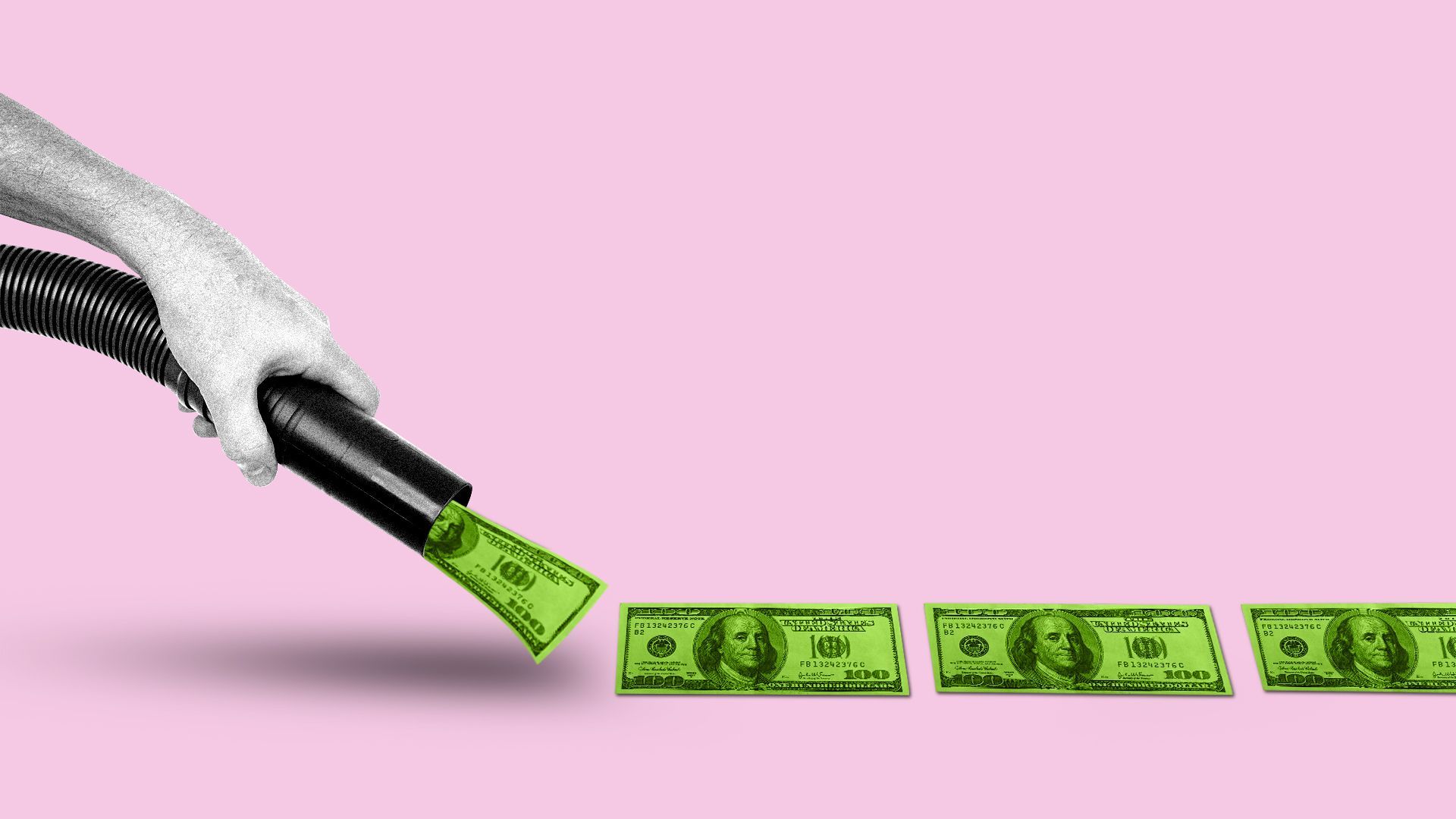How billions of dollars go to waste
Add Axios as your preferred source to
see more of our stories on Google.

Illustration: Aïda Amer/Axios
February saw one of the most effective ways of destroying wealth, thanks to the gyrations in the stock market. More broadly, institutions and individuals around the world have been getting better and better at vacuuming up money and keeping it from doing useful things in the economy as a whole.
Driving the news: Stocks went up this month and then they went down. The rise in stocks coincided with sustained buying pressure — a lot of money entered the market as it was going up. Then the fall came suddenly, not so much as a result of selling pressure, more as a result of the market reacting to coronavirus news by simply marking down the valuation of most stocks.
The result: The money that went in to the market while it was rising was lost, while almost no one successfully took profits at the top. Losses therefore vastly exceeded gains, even when the stock market was flat on the month. Now that the market has turned negative for February, the losses are greater still.
The big picture: The U.S. stock market pays out, in dividends and buybacks, much more money than its member companies receive from the sale of shares in IPOs and secondary offerings.
- What that means: Money flowing into the stock market just goes to other investors. It doesn't really help the companies whose shares are being bought. Rather, those companies take the profits from their billions of customers and pay them out to their shareholders. Roughly 50% of all dividends and buybacks end up flowing to the richest 1% of the population.
The Mormon church similarly takes tithes from its millions of members and funnels them into a $100 billion investment fund, Ensign Peak Advisors, that never spends any money on anything. According to the WSJ, employees were told that funds would get spent only when there was "direction from the prophet." (The prophet, the president of the church, is in turn inspired by God.)
Germany's economy is imploding because of the so-called "Black Zero" — the idea that citizens' tax revenues should be saved by the government rather than spent. Germany had a consolidated government budget surplus of some €50 billion in 2019.
Non-economic investments are ludicrously expensive, whether they're in bitcoin (~$9,000 per coin), gold ($1,650 an ounce), or even art ($105 million for a brace of Picassos).
The bottom line: When the very rich just shuffle money around among one another, it serves no useful purpose. If you lend money out, by contrast, it nearly always gets immediately spent in the real economy. But one problem with near-zero interest rates is that they make debt less attractive as an investment.
Go deeper: What the Mormon church has in common with Larry Page
